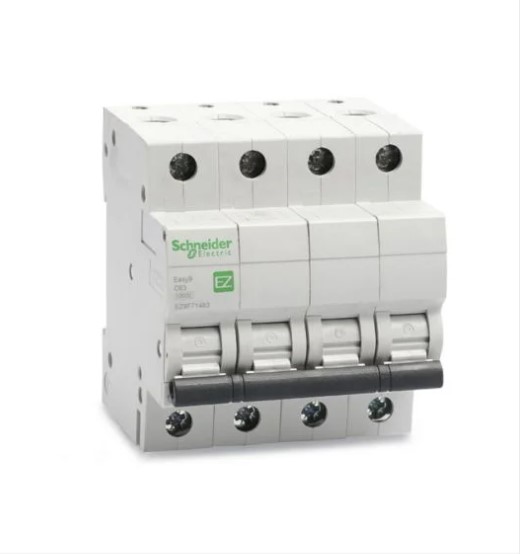Miniature Circuit Breakers (MCBs) are essential electrical devices used to protect electrical circuits from overloads and short circuits. Unlike traditional fuses, MCBs can be reset after a fault, making them a preferred choice in modern electrical installations. In this blog, we will explore the differences between 16 amp and 25 amp MCBs, their prices, and their applications in various settings.
What is an MCB?
An MCB, or Miniature Circuit Breaker, is an electromechanical device designed to automatically switch off the electrical circuit in the event of an overload or short circuit. It operates on the principle of thermal and magnetic tripping, which ensures that excessive current does not pass through the circuit. MCBs are crucial for maintaining safety in residential, commercial, and industrial electrical systems.
Why Use MCBs?
- Safety: MCBs provide essential protection against electrical hazards, preventing electrical fires and equipment damage caused by overloads.
- Automatic Resetting: Unlike fuses, MCBs can be reset manually after tripping, saving time and effort in maintaining electrical systems.
- Compact Size: MCBs are smaller and easier to install compared to traditional circuit breakers, making them suitable for various applications.
Types of MCBs
MCBs come in different types based on their tripping characteristics, which can be classified as follows:
- Type B MCBs: Designed to trip between 3 to 5 times the rated current, suitable for residential applications with moderate inrush currents.
- Type C MCBs: Trip between 5 to 10 times the rated current, ideal for commercial and industrial applications where higher inrush currents are common.
- Type D MCBs: Designed to trip at 10 to 20 times the rated current, suitable for heavy machinery and equipment.
Comparing 16 Amp and 25 Amp MCBs
1. 16 Amp MCBs
Applications:
16 amp MCBs are typically used in residential and light commercial applications. They are suitable for circuits that power lighting, small appliances, and other low to moderate load devices.
Advantages:
- Cost-effective: Generally lower in price compared to 25 amp MCBs.
- Easy to install: Their compact design makes installation straightforward in homes and small offices.
Price:
The 16 amp MCB price varies based on the brand and features. On average, you can expect to pay between INR 250 to INR 800 per unit. High-quality brands like Schneider Electric may have a slightly higher price but offer superior reliability and performance.
2. 25 Amp MCBs
Applications:
25 amp MCBs are designed for circuits with higher current requirements, such as those powering air conditioners, water heaters, and larger machinery in commercial settings.
Advantages:
- Higher capacity: Capable of handling more significant loads, making them suitable for various industrial applications.
- Durability: Built to withstand higher inrush currents, ensuring longevity in demanding environments.
Price:
The 25 amp MCB price typically ranges from INR 300 to INR 1,000, depending on the manufacturer and specifications. Schneider Electric eShop offers a variety of options, ensuring you find a reliable MCB that fits your needs.
Factors Influencing MCB Prices
When considering MCB prices, several factors come into play:
- Brand: Reputable brands like Schneider Electric may charge more for their products, but they also provide better quality, reliability, and customer support.
- Type and Rating: Different types of MCBs (B, C, D) and their amp ratings can significantly affect the price. Higher-rated MCBs typically cost more.
- Features: Some MCBs come with additional features like indicator lights, test buttons, and better thermal protection, which can increase the price.
- Bulk Purchase Discounts: Buying in bulk can lead to significant savings, especially for contractors and electricians.
Choosing the Right MCB
When selecting between a 16 amp and a 25 amp MCB, consider the following factors:
- Load Requirement: Determine the total load of the appliances and devices connected to the circuit. If the total load exceeds 16 amps, a 25 amp MCB is necessary.
- Application Type: Assess whether the circuit is for residential use or commercial/industrial applications. Light loads can use a 16 amp MCB, while heavier loads will require a 25 amp MCB.
- Future Expansion: If you plan to expand your electrical system or add more devices in the future, it might be wise to invest in a higher-rated MCB.
Conclusion
Miniature Circuit Breakers (MCBs) are vital for ensuring electrical safety in various environments. Understanding the differences between 16 amp and 25 amp MCBs, along with their respective prices, helps consumers make informed decisions about their electrical installations. When considering reliability and quality, choosing reputable brands like Schneider Electric is essential. For a wide range of MCBs, including both 16 amp and 25 amp options, you can visit Schneider Electric eShop for competitive pricing and excellent service. By investing in the right MCB, you are taking a significant step towards ensuring the safety and efficiency of your electrical systems.


